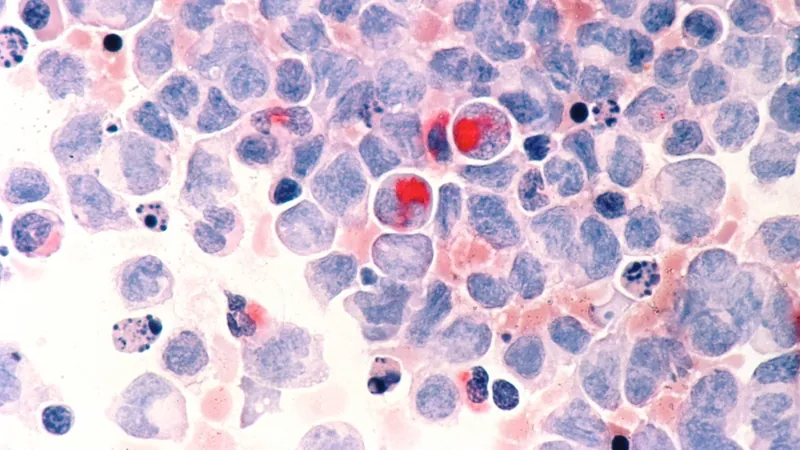
Shocking Surge: Global Diabetes Rates Double in Just 30 Years!
2024-11-14
Author: Wei
Introduction
In a startling revelation, a recent study published in The Lancet journal has found that the global diabetes rate among adults has doubled over the last three decades. As of 2022, approximately 14% of all adults worldwide suffer from this serious health condition, compared to just 7% in 1990. This dramatic increase raises urgent concerns, particularly as developing countries face the highest rises in diabetes cases.
Current Global Statistics
With the global population expanding, current estimates suggest that over 800 million individuals are now living with diabetes—a staggering increase from the fewer than 200 million diagnosed in 1990. This epidemic encompasses both main types of diabetes: Type 1, which typically emerges in childhood and results from an insulin deficiency, and Type 2, primarily affecting middle-aged and older adults as they lose sensitivity to insulin.
Regional Disparities
However, the story does not unfold uniformly across the globe. In wealthier nations such as Japan, Canada, and various Western European countries like France and Denmark, diabetes rates have either stabilized or even declined. Alarmingly, developing countries bear the brunt of this crisis. For example, in Pakistan, nearly one-third of women are now living with diabetes, a significant rise from less than 10% recorded three decades ago.
Drivers of the Epidemic
The study's authors emphasize that obesity and unhealthy dietary habits are critical drivers of Type 2 diabetes, fueling its rampant growth. Additionally, they warn of a widening chasm in diabetes treatment accessibility between richer and poorer nations. According to the researchers, approximately three out of five individuals over the age of 30—amounting to 445 million adults—did not receive adequate treatment for diabetes in 2022, with India alone accounting for about a third of this staggering figure.
Dire Treatment Access in Developing Countries
In sub-Saharan Africa, the situation is even more dire, with only 5-10% of adults with diabetes receiving treatment last year. Although some developing countries, like Mexico, have made strides in managing their diabetes rates, the overall global divide in effective diabetes care continues to grow, a trend that is deeply troubling.
Health Implications
Senior study author Majid Ezzati from Imperial College London warns that the implications of untreated diabetes are severe. "People with diabetes are often younger in low-income countries, and without effective treatment, they are at risk of developing lifelong health complications," he stated. These complications can include amputation, heart disease, kidney damage, and vision loss, ultimately leading to premature death in many cases.
Call to Action
As awareness of this alarming health crisis spreads, it becomes increasingly clear that immediate action is required to address the root causes, improve treatment access, and ultimately save lives. The rise in diabetes could have far-reaching implications for global health systems unless proactive measures are implemented now!
Conclusion
Stay tuned as we continue to bring you the latest on this critical issue and the steps being taken to combat this growing epidemic!




 Brasil (PT)
Brasil (PT)
 Canada (EN)
Canada (EN)
 Chile (ES)
Chile (ES)
 España (ES)
España (ES)
 France (FR)
France (FR)
 Hong Kong (EN)
Hong Kong (EN)
 Italia (IT)
Italia (IT)
 日本 (JA)
日本 (JA)
 Magyarország (HU)
Magyarország (HU)
 Norge (NO)
Norge (NO)
 Polska (PL)
Polska (PL)
 Schweiz (DE)
Schweiz (DE)
 Singapore (EN)
Singapore (EN)
 Sverige (SV)
Sverige (SV)
 Suomi (FI)
Suomi (FI)
 Türkiye (TR)
Türkiye (TR)